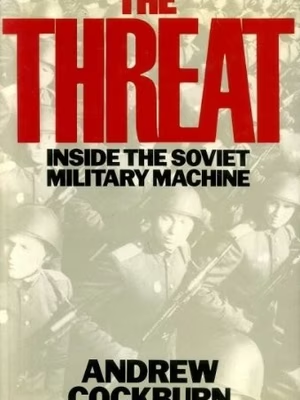Overview
The Threat is partly a memoir of a dedicated FBI agent and partly a warning about the fragility of democracy. Andrew McCabe shares his journey fighting Russian organized crime and terrorism, eventually becoming the Deputy Director of the FBI. But the core of the story focuses on the 2016 election and the chaotic early days of the Trump administration.
McCabe explains why the FBI must remain independent and apolitical. He details how the Bureau’s strict rules and procedures, often seen as "red tape", are actually designed to protect citizens from powerful leaders who want to abuse the system. It’s a look at what happens when the rule of law collides with a demand for personal loyalty.
My Take: The "Integrity Stress Test"
Most people read this book for the political headlines, but I read it as a leadership manual for crisis management. I call it the "Integrity Stress Test." McCabe’s story forces you to ask: "What do I do when my boss asks me to do something that feels wrong?"
I use this book as a reminder of the importance of documentation. Throughout the book, McCabe relies on his contemporaneous memos, notes he wrote right after meetings, to protect the truth. In my own work, this taught me that writing things down isn't just about being organized; it’s about creating an anchor of truth that you can hold onto when things get chaotic later.
Key Takeaways
Process Protects the Truth
McCabe emphasizes that the FBI’s strict procedures aren't just bureaucracy; they are safety rails. By forcing agents to follow a specific process for opening cases or conducting interviews, the organization prevents personal bias from taking over. When leaders try to skip the process, corruption usually follows.
Loyalty to the Constitution, Not the Boss
A major theme is the difference between loyalty to a person and loyalty to the law. McCabe argues that public servants take an oath to the Constitution, not to a president or director. This distinction is vital because it allows institutions to survive even when bad leaders are in charge.
The Value of Contemporaneous Notes
One practical lesson is the power of writing things down immediately. McCabe and James Comey kept detailed memos of their interactions with the President. These notes became critical evidence later, proving that memory fades, but records stay.
Terrorists vs. Political Threats
McCabe contrasts fighting terrorists (an external threat) with political interference (an internal threat). He suggests that while bombs are dangerous, the erosion of public trust in institutions is a quieter but more fatal threat to the country. Without trust, the FBI cannot do its job.
Chapter-by-Chapter Summary
The Education of an Agent
McCabe starts with his early days in the FBI, working on a SWAT team and investigating Russian organized crime in New York. He explains the "fledgling" years where agents learn that details matter. This section establishes his deep respect for the rules and the hierarchy that governs the Bureau.
The Shift to Terror
He describes the massive shift after 9/11, where the FBI transformed from a law enforcement agency into an intelligence agency. He details the high-pressure environment of counterterrorism, including the Boston Marathon bombing. The lesson here is about making decisions with imperfect information while the clock is ticking.
Benghazi and The Emails
McCabe moves into the politically charged investigations of the 2016 era, specifically the Benghazi attack and the Clinton email server. He explains the FBI's struggle to stay neutral while being dragged into a partisan fight. He details the "Midyear Exam" (the code name for the Clinton case) and the reasoning behind not charging her.
The 2016 Election Chaos
This section covers the collision of the Clinton investigation and the emerging Russia inquiry. McCabe defends the difficult decisions made by the FBI, including Director Comey’s public announcements. He highlights how standard procedures began to buckle under the weight of unprecedented public scrutiny.
The Firing of James Comey
McCabe describes the shock of finding out Director Comey was fired via television screens in the background of a meeting. He suddenly became Acting Director. This chapter is a masterclass in crisis leadership: keeping the team focused on the mission while the leadership structure collapses above them.
The Oval Office Meetings
Here, McCabe recounts his strange and uncomfortable interactions with President Trump. He describes the President's demand for loyalty and his confusion about why the FBI wouldn't protect him personally. McCabe uses these interactions to show the stark contrast between the FBI's culture of independence and the President's transactional worldview.
The Final Days
The book concludes with the internal investigation into McCabe himself and his firing just hours before his retirement. He frames his firing not as a personal tragedy, but as an attempt to discredit the witness to obstruction of justice. Despite the loss of his pension (at the time), he ends on a note of defiance and belief in the truth.
Main Concepts
The Wall of Separation
McCabe talks a lot about the "wall" that is supposed to exist between the White House and the Department of Justice (DOJ). Traditionally, the President does not ask about specific criminal cases to prevent political targeting. The core conflict in the book is the breaking down of this wall, where the lines between politics and justice get blurred.
Rule of Law (FBI Norms)
- Loyalty to the Constitution
- Investigations based on evidence
- Independent from political pressure
- Document everything for the record
- Silence regarding ongoing cases
Rule of Loyalty (Political Pressure)
- Loyalty to the Leader
- Investigations based on enemies
- Serves the administration's goals
- Relies on verbal, off-record orders
- Publicly commenting to sway opinion
Institutional Integrity
A big idea in the book is that institutions are made of people, and they are only as strong as the people inside them. McCabe argues that "The FBI" isn't a building; it's a collection of habits and norms. If agents stop following the norms because they are afraid of being fired, the institution effectively dies, even if the building is still standing.
How to Apply the Ideas This Week
You probably aren't investigating international conspiracies, but the leadership lessons here apply to any high-pressure job. Here is how I apply McCabe’s principles to my own professional life.
- Start a "Work Journal." If you are in a difficult situation or dealing with a difficult boss, write down what happens immediately after it happens. Date it. Keep it factual. This record is your best defense against gaslighting later.
- Define your "Oath." Ask yourself: Who do I serve? Is it my boss, my client, or a set of professional standards? Knowing where your ultimate loyalty lies helps you make decisions when those things conflict.
- Trust the process when you are emotional. When you feel panicked or angry, don't act on gut instinct. Lean on the established procedures of your job. They are there to stop you from making emotional mistakes.
- Protect your team from the noise. If you are a leader, your job is to be a shield. McCabe tried to keep his agents focused on their cases while politics swirled above. Try to block distractions for your team so they can do their actual work.
Memorable Quotes
“To be an FBI agent is to be part of an organization that is about process, about facts, about the truth.”
“The president is not the CEO of the country. He is the head of the executive branch... He is not above the law.”
“Institutions are fragile. They are only as strong as the people who hold them up.”
Who I Think Should Read This Book
- Leaders in large organizations: If you work in a bureaucracy, you will learn how to navigate red tape without losing your soul.
- Students of political science: It gives a primary source view of how the executive branch interacts with federal law enforcement.
- Anyone facing an ethical dilemma: If you are being pressured to bend the rules at work, this book validates why it is hard, and why it is necessary, to say no.
- History buffs: This is a key document for understanding the chaotic years of the 2016 election and its aftermath.
What Other Readers Are Saying
This is a polarizing book because of the politics involved, but the ratings are generally high. On Goodreads, it holds a rating of roughly 4.1 out of 5 stars. Readers who enjoyed it often describe it as "terrifying but necessary" and appreciate the insider look at how the FBI actually functions day-to-day.
On Amazon, the book has a rating of roughly 4.6 out of 5 stars. Positive reviews praise McCabe’s clarity and courage. Critical reviews often come from those who disagree with his political actions or feel the book is too defensive. However, most agree that it is a well-written account of a historic time in American law enforcement.
-
Read reviews on Amazon:
The Threat on Amazon
* Affiliate link. I earn from qualifying purchases.
- Read reviews on Goodreads: The Threat on Goodreads
Final Thoughts
The Threat changed how I look at the boring parts of my job. I used to think rules and paperwork were just annoying hurdles. After reading this, I see them as the things that keep us honest. McCabe’s story is a heavy reminder that integrity isn't something you have; it's something you do, especially when it costs you something.
Whether you agree with his politics or not, the lesson on the "Stress Test" is universal. When the pressure mounts, you don't rise to the occasion, you fall to the level of your training and your habits. This book encourages me to build better habits now, before the crisis hits.
Ready to Read the Full Story?
This summary covers the main lessons, but the full book is packed with tense, real-life scenes from inside the Oval Office and the FBI command center. It is worth reading to see exactly how these conversations played out word-for-word.
Get The Threat on Amazon* Affiliate link. I earn from qualifying purchases.

